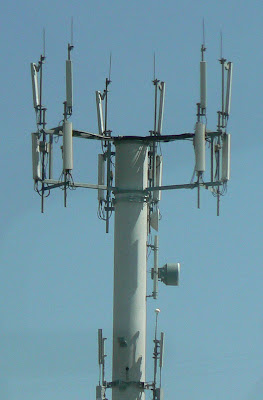 |
| Apple is losing in the online media business, so they're placing a big bet and playing hardball to catch up. Photo by Uwe Hermann |
Apple is picking a big fight with online media and subscription companies. And the assumption in the blogosphere is that they're doing it from a position of strength. They're not. Sure, Apple is a strong company, but the reality is that Apple is losing the battle for online content. From a compelling lead position just a few years ago, Apple is now behind in every major form of online media: books & newspapers, video, and music.
How did this happen? Whatever it is, it's probably not Apple's fault. You'd have to be buried under a rock not to notice the enormous success of other players in this space. Amazon is the leader here in print, the Kindle is a blockbuster of epic proportions. Apple and Amazon faced off in a fair fight, and Amazon crushed them.
Music and TV, however, were not fair fights. Apple pioneered the business with a buy-and-download model, but success has come in the streaming approach - namely Pandora, Spotify, Hulu, and Netflix. Make no mistake: most industry insiders know Apple has been trying to offer comparable options (subscription plans, TV show rental) and failed. And not because they haven't offered a lot of money but because the content owners have not offered the same deals to Apple that they have to others.
The result: a group of cross-platform winners are starting to erode some of the media capabilities that make the Apple ecosystem special. Kindle, Hulu, Spotify, Netflix, and Pandora are all trying to become almost utilities: operating on every TV set, smart-phone and tablet in the marketplace. This is bad news for Apple's ecosystem which is becoming less special. As more content migrates to the cloud, the complexity of integration across devices goes down, and with it, some of the magic that Apple had in the tight interaction of Mac, iPad, iPod, and iPhone.
And so Apple is fighting back and playing hardball. And I say good for them. As ugly as this fight might get, it could be good for consumers and for the industry. Right now, content owners have been able to have their cake and eat it too: back their preferred non-Apple winners while enjoying access to a gargantuan marketplace created by Apple, all the while trying to handicap Apple's efforts to compete. This is all born out of a fear that, should they give Apple the same terms as others, they would crush the competition. (A not unreasonable fear, given Apple's track record).
How could things work out better: let's imagine the ways. Put yourself in the place of ABC TV, selling content to Apple and Hulu. Right now, ABC sells very expensive content to Apple and cheap content to Hulu, in which they own a big stake. Hulu get to sell adds and low cost subscriptions, Apple can only offer thee items at $0.99 or $1.99 or $2.99, much less attractive. For $8, I get an entire month of Hulu plus, with few commercials. For the same price, I can have four episodes of TV from Apple, 2 if I want them in HD. The choice is for Hulu and that's a no-brainer.
Now, if I'm ABC, I have to face some tough choices. My options include:
1. Give up on subscription or purchase revenues through the Apple ecosystem. An ugly choice given Apple's lead in mobile devices.
2. Cut prices to Hulu even more so they can afford to work in the Apple ecosystem. This would strengthen Hulu, creating a stronger cross-platform competitor, but possibly infuriate cable companies and other distribution channels.
3. Sell the same content to Apple directly at prices similar to what they were offering Hulu - getting back from Apple the subscription revenue they will lose when Hulu can no longer sell in that ecosystem.
Option 1 is strategically risky. It's not just that you lose revenue, you may also lose viewers, especially younger ones who no longer know or care about networks - they just want to watch their favorite shows. (I'm not young, but I must admit, since CBS shows are not Hulu, I don't want much CBS anything anymore...). If that happens and some other companies start growing their content with Apple, it could rewrite the landscape for entertainment, especially if those newcomers aren't traditional operators with competing cable TV and broadcast interests.
Option 2 could strengthen Hulu and preserve the status quo in the short run. In the long run it too could result in big industry changes if Hulu or another company emerge as a viable virtual cable TV network operator.
Option 3 brings the fastest re-write to the industry script. This could make Apple into an overnight virtual cable television network operator, transforming the industry landscape as well by giving it competitively priced subscription models.
See where I'm going here: each and every one of these options breaks the industry's model of creating a viable competitor to Apple while trying to milk Apple's ecosystem for users and subscription revenue. What happens in TV is just, writ larger, a model for how other content areas could go too: subscriptoin has won and buy-and-download has died. And, short of an anti-trust intervention, every likely reaction to Apple's big bet requires content providers to make their own big bet.
In this respect it's like a big global industry poker game. Apple just pushed all their chips into the pot and the content industry players need to decide: are we matching the bet and playing on, or do we fold now and give our winnings to Apple?


















